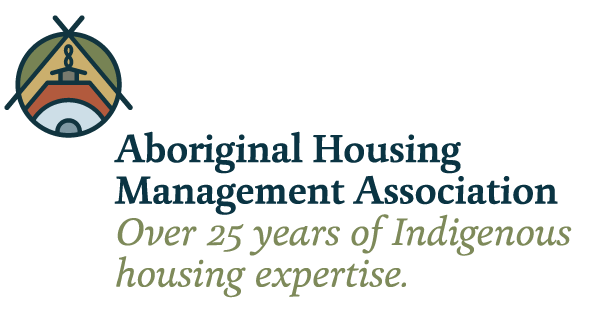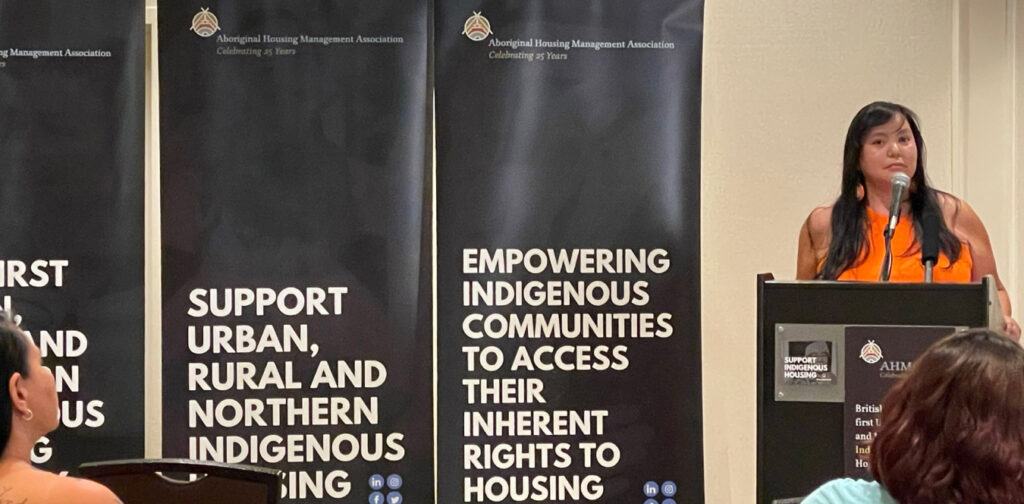
Research & Data Reports
AHMA produces and collaborates on reports, offering policy and decision-makers high-quality data and recommendations. Each report represents extensive research and consultation on housing precarity, its impacts on Indigenous people, and insights for solutions.
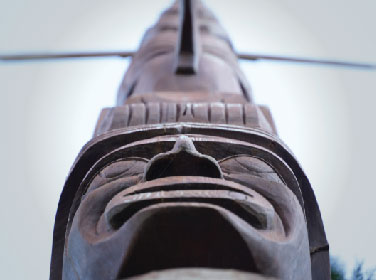
AHMA’s Urban, Rural and Northern Indigenous Housing Strategy for BC
On January 26, 2022, AHMA release the British Columbia’s first Indigenous community led Provincial Urban, Rural and Northern Housing Strategy. Learn more here: News Releases.
2024 Strategy Summary – Updated >
2024 Full Strategy – Updated >
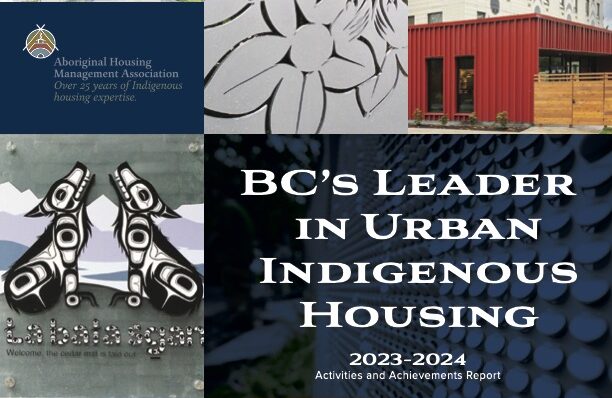
Annual Report 2023/2024
Today, 75% of the Indigenous population lives off reserve and Urban Indigenous People have unique needs for housing and cultural support, as many are impacted by inequity, racism and intergenerational trauma. AHMA is the first For Indigenous, By Indigenous housing authority in Canada and for the last 50 years, our members have expertly supported Indigenous families, Elders, and individuals with critically needed housing and services.
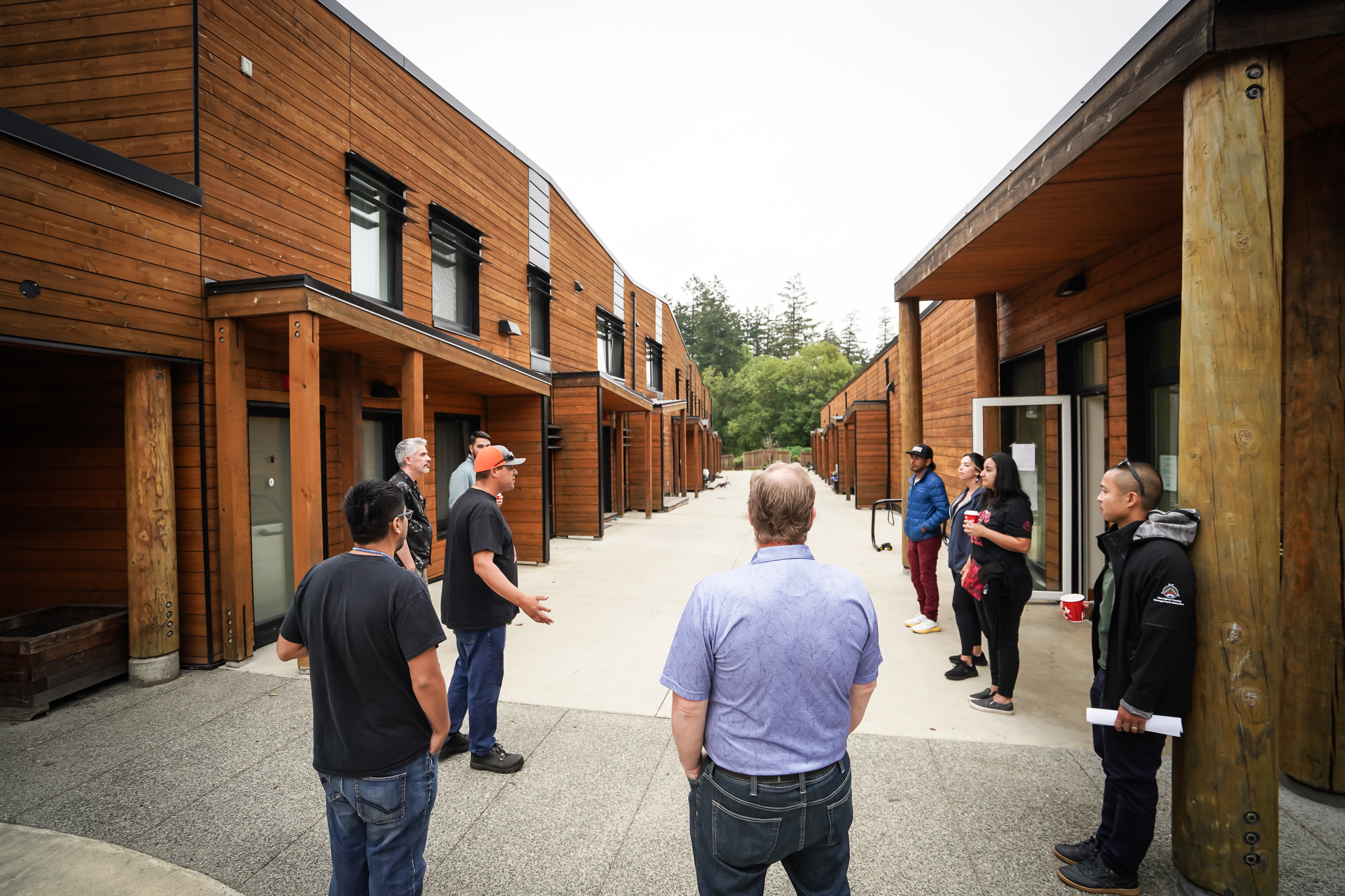
Operations Member Needs Assessment
Between June 2022 and November 2023, AHMA engaged in a needs assessment process with member organizations. The needs assessment focussed on understanding AHMA members’ experiences providing housing and homelessness services, with a focus on operational needs related to providing holistic, trauma-informed and culturally supportive programs and services.
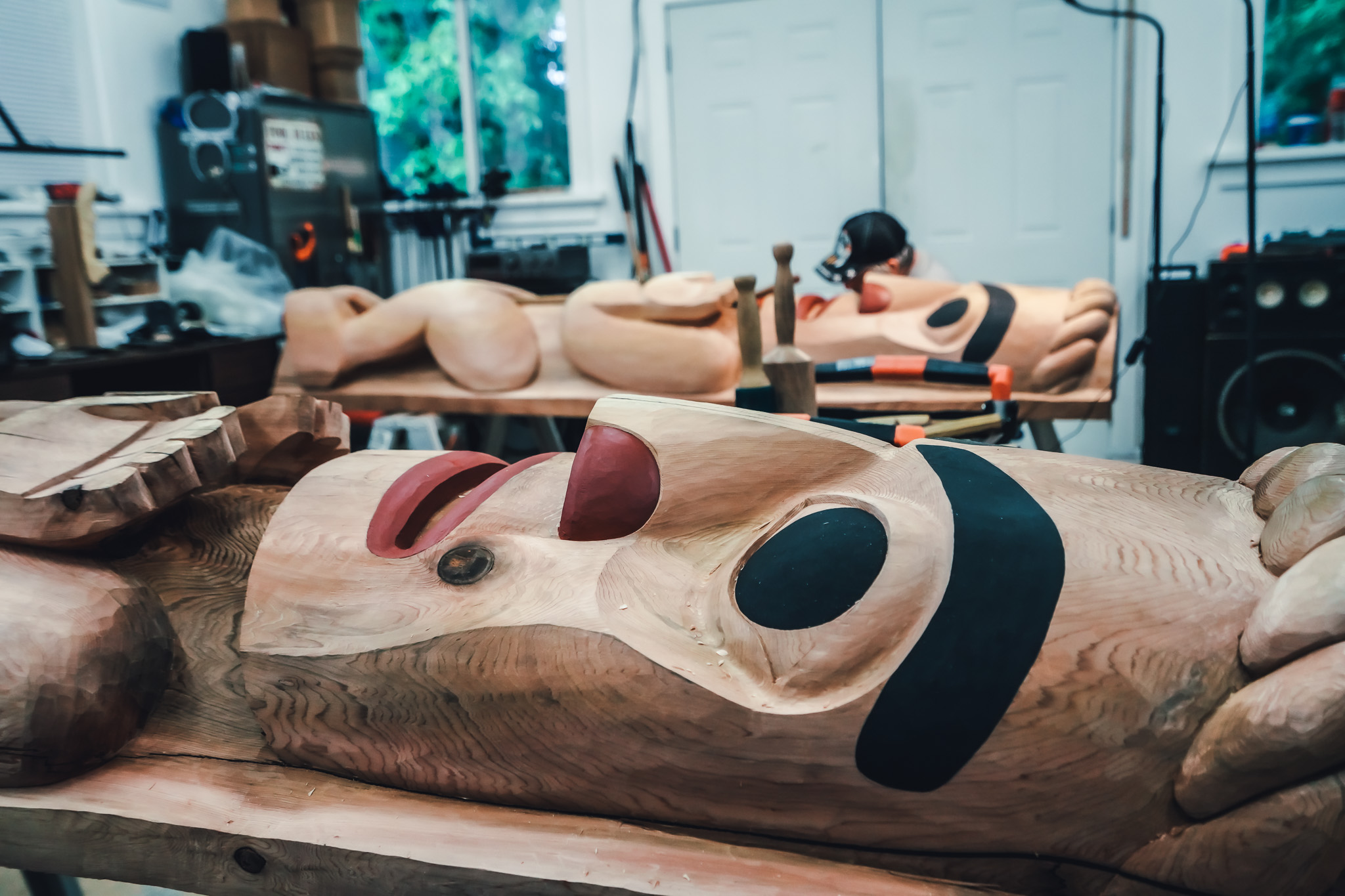
Data and Evaluation Framework
The Indigenous Data and Evaluation Framework supports AHMA’s long-term goal of For Indigenous, By Indigenous housing by improving awareness and capacity, advocating for data sovereignty, developing Indigenous-led approaches, and developing best practices for data governance and management.
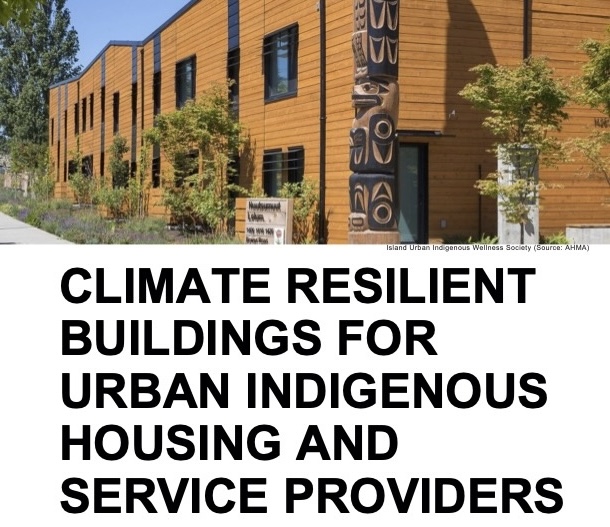
Climate Resilient Buildings for Urban Indigenous Housing and Service Providers
This project aims to identify various ways to incorporate elements of climate resiliency into urban Indigenous non-profit housing and service providers to prepare for the impacts of climate change. It also highlights challenges, opportunities, best practices, and resources for AHMA member organizations and other stakeholders in building capacity for climate resiliency in asset management.

Environmental Scan: Land-Based Healing
Indigenous land-based healing programs draw from diverse cultures, spiritual foundations, and relationships ingrained with profound wisdom in Indigenous healing practices. Direct funding for land-based healing initiatives led by Indigenous Elders, Knowledge Keepers and organizations is imperative for better health outcomes and enhances culturally safe services for Indigenous people.
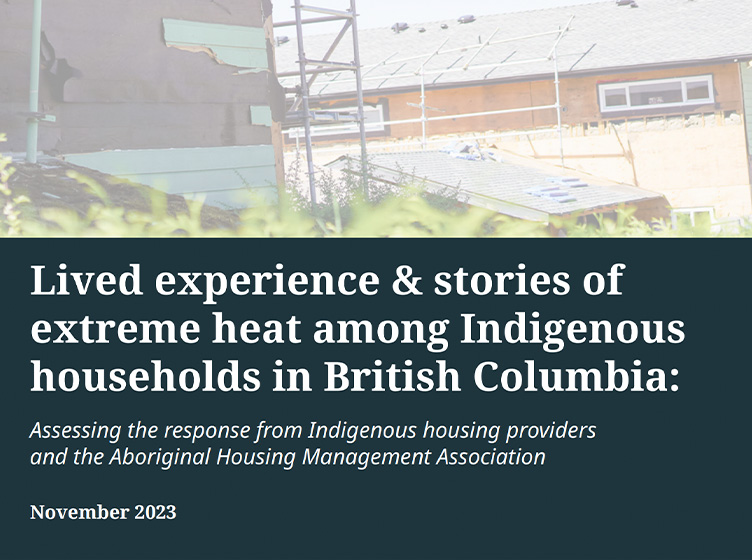
Lived experience & stories of extreme heat among Indigenous households in British Columbia
This report sought to address some of the barriers and knowledge gaps in responding to the inevitable impacts of climate change, such as extreme heat. This research project meaningfully engaged Indigenous non-profit housing providers and their lived experiences, challenges and priorities.
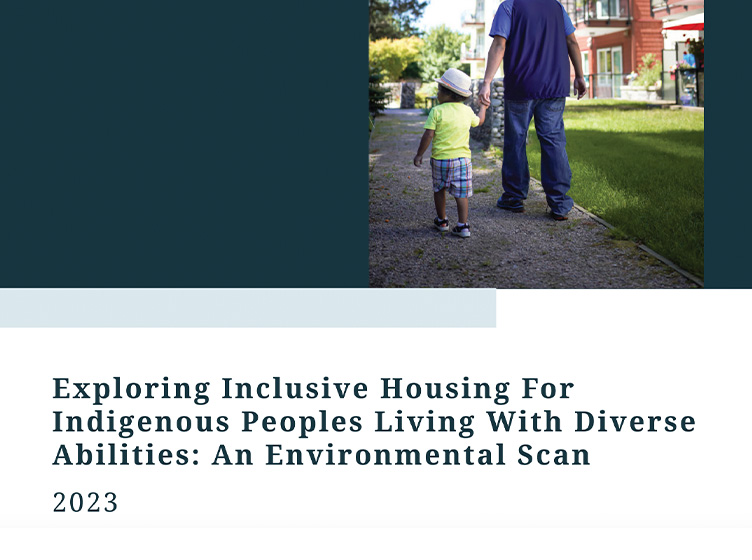
Exploring Inclusive Housing for Indigenous Peoples Living with Diverse Abilities: An Environmental Scan
AHMA’s latest report examines the accessibility of housing supports and services for Indigenous Peoples with diverse abilities in BC. Findings reveal that Indigenous-led housing is essential to reducing the gaps, barriers, and challenges Indigenous Peoples with diverse abilities face. Current systems increase the risk of the most vulnerable falling through the cracks and into a cycle of homelessness.

Annual Report 2022 / 2023
Our role and influence have been evolving rapidly since launching the Urban, Rural and Northern Indigenous Housing Strategy in early 2022. AHMA now sits on multiple For Indigenous, By Indigenous policy and advocacy tables, in BC and nationally. Our strategy is an evidence-based resource other jurisdictions can look to for guidance on Indigenous housing at every level of government.
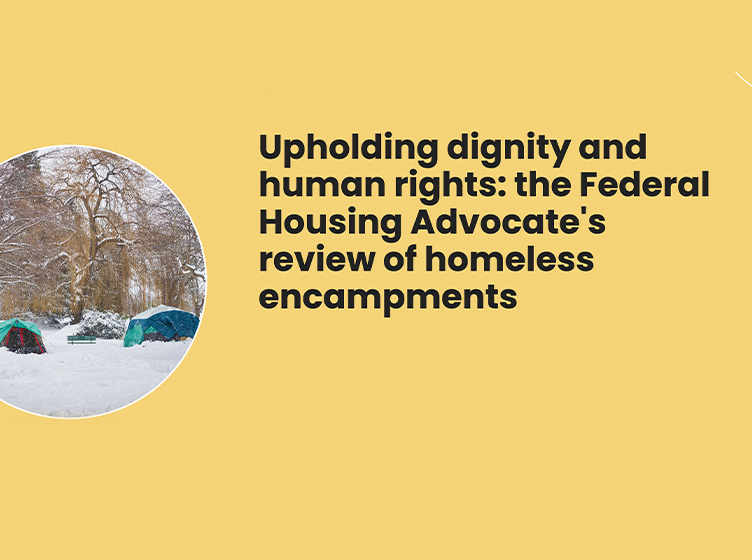
Federal Housing Advocate’s Final Report on Encampments
The Advocate’s final report on encampments in Canada calls for a National Encampments Response Plan and makes final recommendations to governments at all levels.
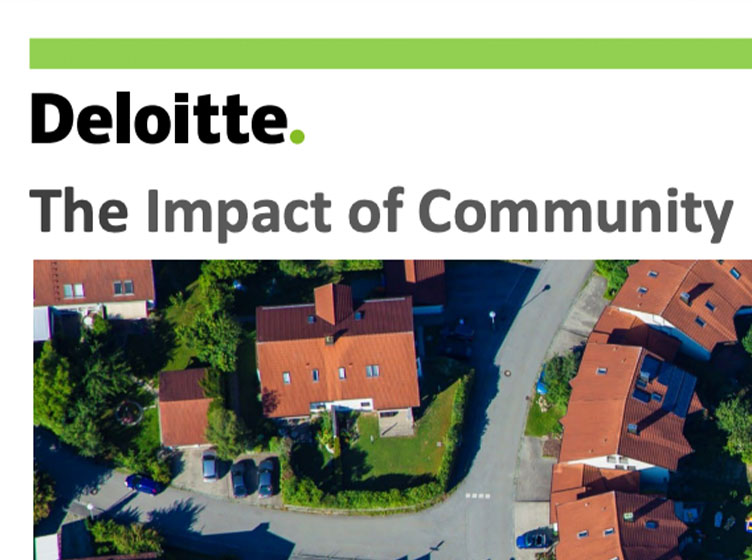
The Impact of Community Housing on Productivity
Community housing is more than a social good – it’s an economic necessity. Canada is struggling through a dramatically worsening housing crisis. Millions of Canadians, particularly those with lower incomes, have been experiencing rapidly rising housing costs, driven in large part by an extreme supply shortfall. This problem isn’t isolated to specific communities, regions, or provinces.

The Role Municipalities Play in Affordable Housing
Municipal leadership has a big role to play in promoting opportunities and reducing barriers to the development of safe, affordable, culturally supported housing. Prioritizing those most in need and engaging with Indigenous housing experts like AHMA helps pave the path to thriving, inclusive communities.
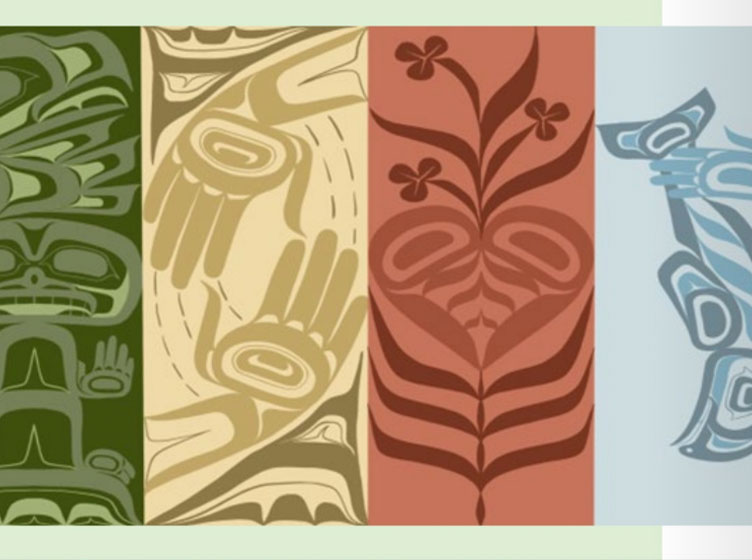
AHMA Articles Featured in infoLINK, a Magazine Published by BCNPHA
Culturally Supported Indigenous Housing >
Right to Housing, National Day of Truth and Reconciliation >
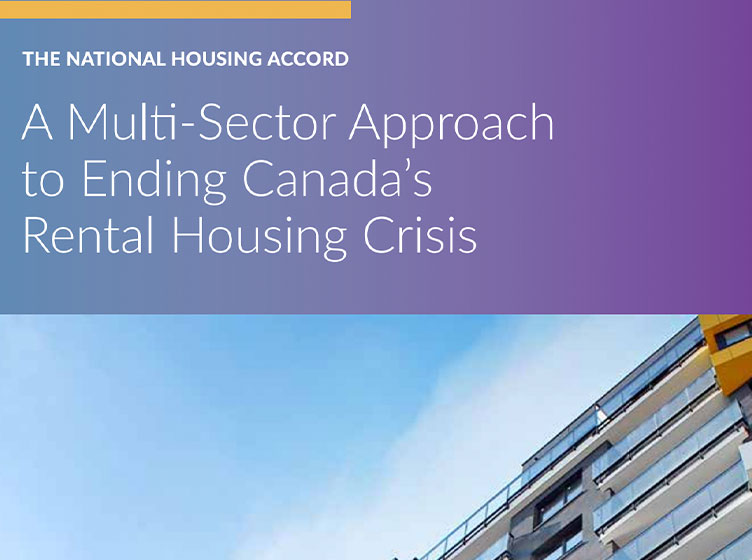
A Multi-Sector Approach to Ending Canada’s Rental Housing Crisis
This report provides ten recommendations focused on how the government can increase the supply of non-market housing, create the conditions for more market housing to be built and provide financial assistance to families precariously housed and at risk of falling into homelessness.
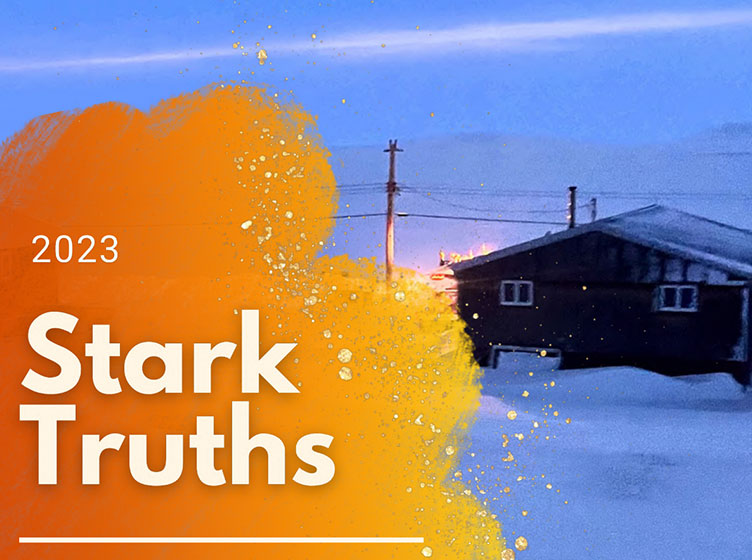
Stark Truths: Indigenous Housing Realities & Solutions in Northern, Remote Communities
This report is an eye-opening exposé on the state of housing in the North, as told by Indigenous community members who face rampant human rights violations every day in their search for safe, secure, and affordable housing.
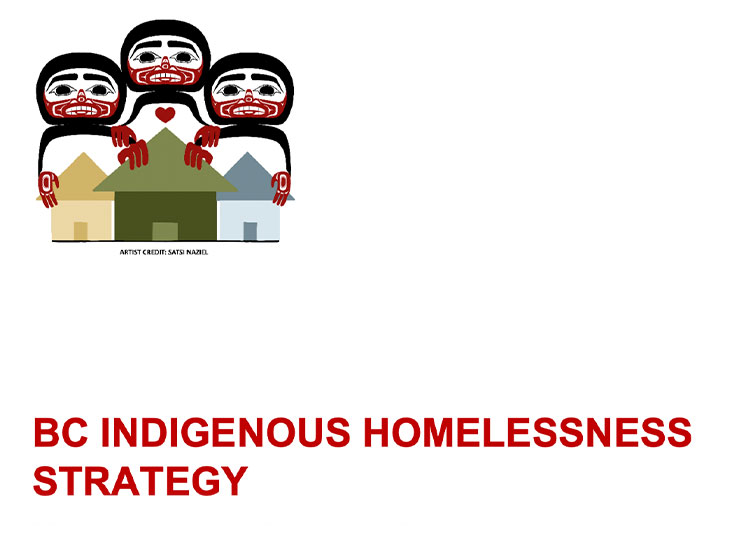
Outreach to Government
AHMA regularly makes submissions to government to advocate for more culturally safe, trauma-informed approaches to Indigenous homelessness in BC.

Aging in Uncertainty: The Growing Housing Crisis for BC Seniors
This report was prepared by United Way British Columbia and the Housing Working Group, a committee of the Community Based Seniors’ Services (CBSS) Leadership Council.
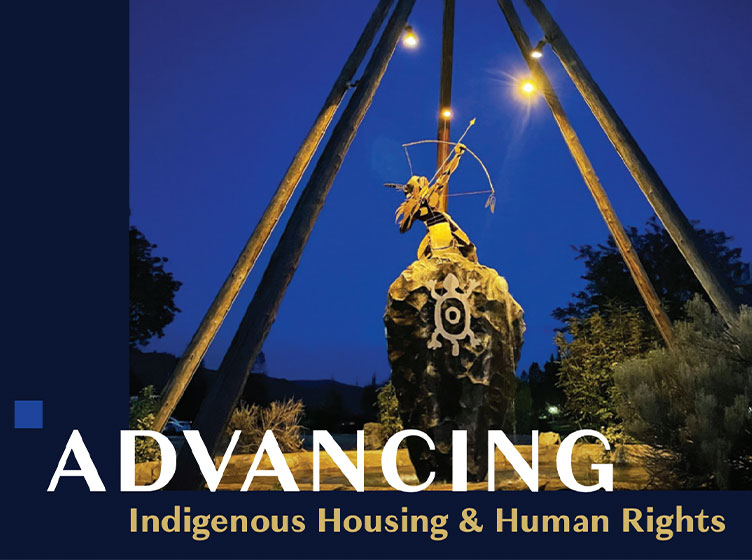
Annual Report 2021/22
Click below for a comprehensive report on AHMA’s most recent activities throughout this last year. Read all the great initiatives our Members are doing and all that AHMA has accomplished over the last 12 months.
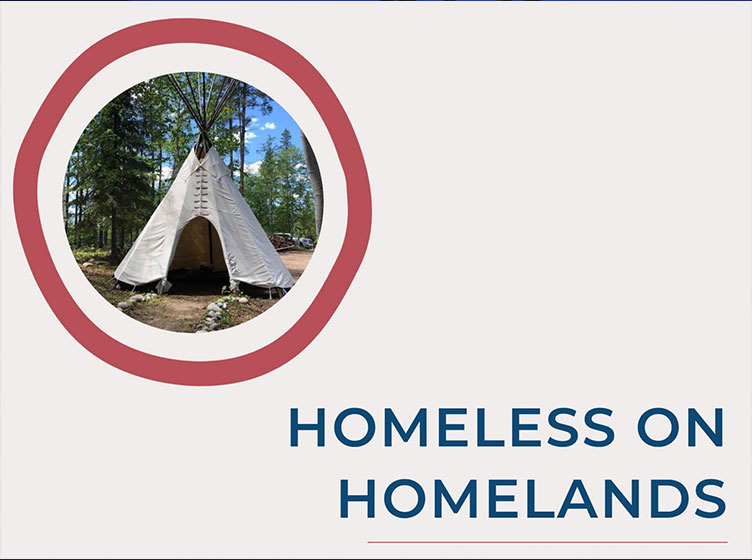
Homeless on Homelands: Upholding Housing as a Human Right for Indigenous Women, Girls, Two-Spirit, and Gender-Diverse People, 2022
Authored by the National Indigenous Feminist Housing Working Group, AHMA provided comments and research to strengthen the claim that Indigenous women, girls, Two-spirit, and gender-diverse people are experiencing some of the most egregious right to housing violations across Canada.

Corporate investment in housing linked to unaffordable rents, evictions, and long-term care deaths: study
Report from the Office of the Federal Housing Advocate

Assessing the Internal Capacity of Urban-Indigenous Housing Providers BC, 2021
This study prepared by Natalie Cappe aims to yield political action to address urban-Indigenous housing needs in the province of British Columbia. The project was designed and conducted in collaboration with AHMA and the University of British Columbia’s Housing Research Collaborative and endeavours to situate those with a nuanced and first-hand perspective on Indigenous Social Housing at the forefront of the conversation.

Indigenous Housing Management: A Comparative Evaluation of On Reserve and Off Nation Housing Programs, 2021
This study was funded through Mitacs Accelerate internship conducted June 2021–September 2022, in partnership with AHMA, Housing Research Collaborative of the School of Community and Regional Planning, and the University of British Columbia. The report presents key findings from a 4-month study exploring the gap between the on-/off-reserve nation housing through two funding streams. Section 95 and the Urban Native Housing Program (serving urban Indigenous populations).

Annual Report 2020-2021
Click below to see a comprehensive report on AHMA’s most recent activities throughout the preceding year. From our members accomplishments to every Indigenous community lead initiative from AHMA.
See our reports on AHMA’s activities throughout the preceding years.
Annual Report 2019/2020 >
Annual Report 2018/2019 >
Annual Report 2017/2018 >
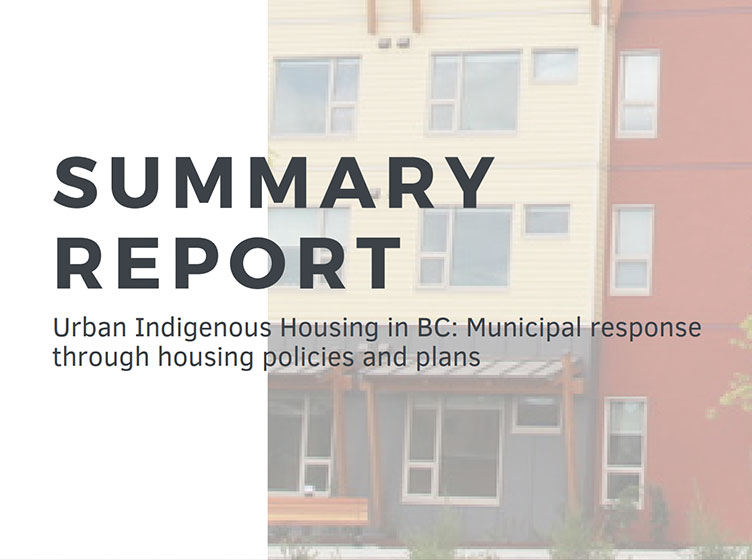
Urban Indigenous Housing in BC: Municipal response through housing policies and plans
AHMA’s new study was undertaken in partnership with the Housing Research Collaborative of the School of Community and Regional Planning (SCARP) at the University of British Columbia. Through this study, we share 8 key findings regarding Urban Indigenous Housing and challenges faced in municipalities across British Columbia.

Understanding the Impacts of British Columbia’s Indigenous Housing Providers: A Scan of the Aboriginal Housing Management’s Asset
AHMA’s successful portfolio and partnerships have had significant and beneficial impacts on its members, communities, and province as a whole.
AHMA completed a survey of its members in 2020. This detailed report is based on the information from AHMA’s members who serve about 8,700 Indigenous individuals and families (i.e. households) across all AHMA’s full membership.

